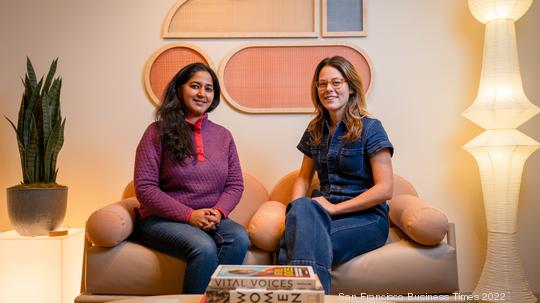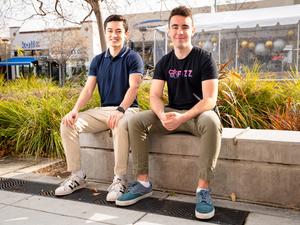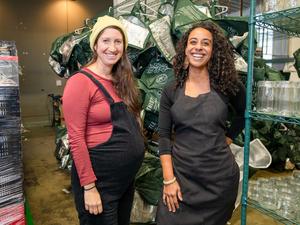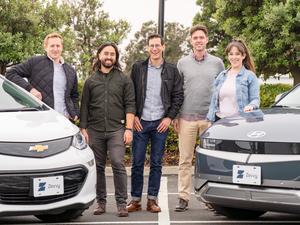
Editor's note: In our 2023 Startups to Watch feature, the Silicon Valley Business Journal and San Francisco Business Times present startups and founders doing unique things in the Bay Area. Millie is one of 15 we profiled this year — to read more about our mission and the other startups we're featuring, click here.
The U.S. spends more on health care as a percentage of total GDP than any other wealthy nation, yet we have worse health outcomes. This is particularly true for maternal health.
Compared with other developed nations, the U.S. has the highest maternal mortality rates with Black women disproportionately impacted. And other pregnancy-related issues that are underserved and underdiagnosed include preeclampsia, breastfeeding support and post-partum depression.
Income disparities contribute to the problem. Nearly 28 million people were uninsured in 2020, according to the Kaiser Family Foundation, while close to 36% of people were covered under Medicaid, Medicare or through the military. Even those with good health insurance can struggle to get adequate care.
Millie is rethinking maternal care by combing in-home visits with telehealth support in order to improve the experiences and outcomes for women and infants.
- Founded: 2020
- Founders: Anu Sharma, CEO; Talia Borgo, clinical director; Sarah Reynolds, CTO
- What it does: Rethinking maternal care through a tech-enabled lens to improve health outcomes
- HQ: San Francisco
- Employees: 15
- Total funding: $4.1 million
Who inspires you? Every female founder and every health care innovator. Both are very difficult journeys.
What was your “aha” moment? Millie was inspired by (Anu's) maternity care experience. Even with an extensive background in health care, good insurance and access to a top hospital, I had a near-miss with postpartum complications. Reflecting on my experience later, I realized the current care model was simply broken. I also realized that I was not alone.
How different is the company today from what you first envisioned? We initially thought Millie would be a virtual platform that wraps around the current care model. However, after beta testing, we realized that we needed to add clinics to actually affect change in how care is delivered in moments that matter.
Describe what your business does for someone from Mars? We have a maternal health crisis in America. Our current model provides incomplete, one-size-fits-all care that is reactive and often over-medicalized. The result is that even though the U.S. has the highest costs of maternity care in the world, outcomes are the worst of any high income country: high rates of maternal mortality and morbidity, C-sections, preterm births and perinatal depression. Millie is redesigning the current model from the ground up with a tech-enabled collaborative obstetrician/midwifery model extended with virtual care and remote monitoring that provides more personalized, continuous care from conception through the first year of life.
Who are your customers? Anyone who is actively considering becoming pregnant, currently pregnant or newly postpartum.
How do you plan to scale? We will continue to add more clinic sites and look at alternative care delivery models to get care in underserved areas where it's most needed.








